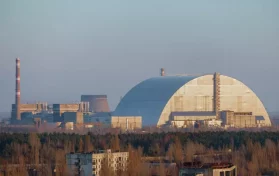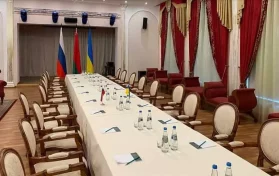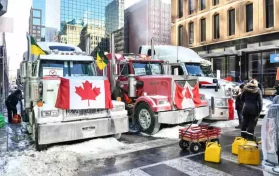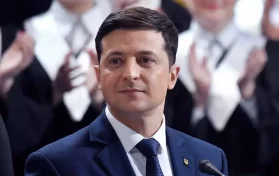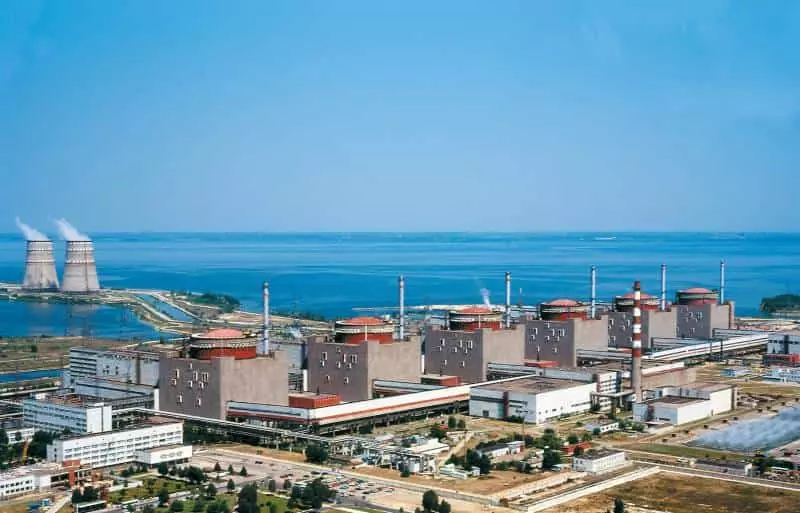
Early Friday morning, multiple news outlets report that Russian troops have taken the largest nuclear power plant in Europe, the Zaporizhzhia plant in Enerhodar, which supplies one quarter of Ukraine’s electricity. Initially, a fire on the grounds of the plant was reported, but, Ukrainian officials say the fire is now under control. In the meantime, however, Europeans were frantically looking to find iodine pills as they feared that the six active reactors at the Zaporizhzhia nuclear power plant’s facility could melt down. The result would be nuclear fallout over not only Ukraine and Russia, but over a great deal of Europe.
Fox News reported shortly after that the IAEA (International Atomic Energy Agency) had released a statement saying that while Russian troops held the vicinity around the Zaporizhzhia plant, the Ukrainian people still have authority over the controls of the plant. The shelling by Russian forces hit the plant itself, which caused the fire. They did not hit a reactor, however.
Even so, many Europeans feared a disaster on the same level as Chernobyl in 1986.
Ukrainian’s nuclear authority said that the once the fire was put out, there were no radiation changes detected. However, the agency could provide no information regarding casualties at the ZNPP site. One reactor had been damaged, according to their information, but the “safety of the unit” had not been compromised.
Crisis agencies are investigating the situation, so more information is expected as the day goes on. Officials did say that Unit Two and Unit Three had been disconnected, while Unit Four is still operational. Units Fix and Six have been shut off in an effort to get those reactors cooled down.
The Ukrainian Foreign Minister Dmytro Kuleba tweeted that “Russian forces were firing from all sides” at the Zaporizhzhia nuclear facility. Military experts across the world have expected Russian President Vladimir Putin to authorize attacks on infrastructure such as the ZNPP, while the Ukrainian military and civilians seem to be holding most major cities.
Russian army is firing from all sides upon Zaporizhzhia NPP, the largest nuclear power plant in Europe. Fire has already broke out. If it blows up, it will be 10 times larger than Chornobyl! Russians must IMMEDIATELY cease the fire, allow firefighters, establish a security zone!
— Dmytro Kuleba (@DmytroKuleba) March 4, 2022
Only one city has fallen into Russian hands. The coastal city of Kherson, which is in southern Ukraine and could provide a great deal of supplies to the country via the Black Sea, was taken on Thursday. Shelling in other coastal cities, such as Mariupol, continue. A forty-mile convoy of Russian military vehicles was spotted nearly one week ago headed to Kyiv, but the convoy of late has been stalled. Some are reporting this is due to issues such as flat tires or running out of fuel, but others say that some vehicles have been blocked by Ukrainians, and, when these vehicles attempted to go off the main road, they became stuck in the thawing Ukrainian ground.
Although these reports are unconfirmed, it is certain that the convoy has moved very little since it was observed via Maxar satellite technology. These are said to be Russian logistics vehicles, possibly bringing supplies to Russian military. However, the convoy isn’t moving, regardless of the cause.
The media has shared multiple reports of very low morale among Russian troops; the people of Russia have protested in over fifty cities, and yesterday, the Russian Parliament held a closed door session in which the members stood and sang the Russian national anthem. Reports are also coming that a majority of Russian people do not support the invasion into Ukraine, but that Vladimir Putin’s Kremlin-controlled media is only providing them with propaganda in an effort to drum up support for his “demilitarization” and “denazification” of Ukraine.
President Zelenskyy spoke out on the ZNPP attack as well: “For the first time ever in our history, in the history of humankind, the terrorist country has reverted to nuclear terror. Russian propaganda had warned in the past to cover the world in nuclear ash. Now this isn’t just a warning, this is real.”
When Chernobyl melted down in 1986, only one reactor exploded. ZNPP offers six operational reactors that could be blown up at any time, and this was the crux of Zelenskyy’s warning.
“Do not let Europe die in the nuclear catastrophe,” he said.


